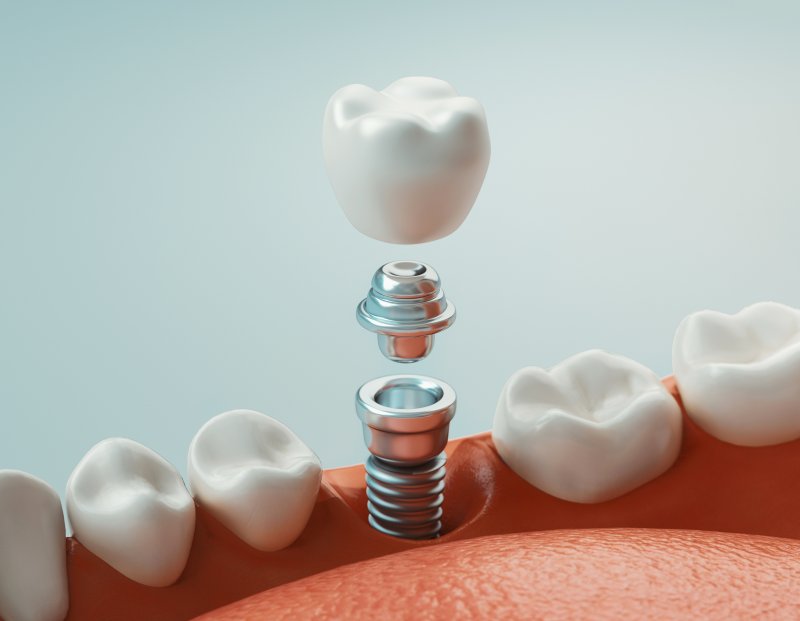
Maybe you already know that dental implants are made of metal. After all, that makeup is why they work so well – the titanium material lets them fuse with your jawbone. Given this fact, though, you may wonder: Do dental implants ever rust? Many metals corrode over time, so it’s natural to assume these prosthetics will also. However, the truth is that implants seldom rust; their features make them corrosion-resistant. To learn more, here’s a summary of the matter from your San Antonio dentist.
Implants Rarely Rust
Yes, implants are metallic – they’re basically small titanium screws for your mouth. There’s thus a risk that they’ll rust or corrode with age. Even so, these restorations’ traits help them avoid rust.
Crucially, titanium dental implants have an oxide layer. This latter part stops saliva from reaching the metal surfaces, reducing the corrosion risk. Put more simply, the layer keeps the electrolytes in your spit from causing rust.
Granted, an implant’s oxide layer isn’t invincible. It doesn’t always work correctly and may let saliva reach your titanium post. That being said, the coating has a very high success rate. Implants, therefore, are trusted not to rust in most cases.
Rusty Implants are Preventable
While the risk is already low, you may want more protection from rusty implants. In that case, you could try out non-titanium versions of the restorations.
One example is zirconia implants – kinds that use ceramic rather than metals. As such, they don’t conduct electrical currents and won’t corrode. Still, this lack of corrosion comes at the cost of zirconia implants’ other downsides.
If you want to try non-titanium implants, consult your dentist first. Their expertise and knowledge will ensure you get the ones that suit your needs.
Other Ways to Care for Implants
Of course, rust isn’t the only factor that can make implants fail. Other threats to treatment can occur if you’re not careful. In light of that fact, remember to use the tips below:
- Practice Good Dental Hygiene –Implants can fail from gum disease and nearby tooth decay if your mouth isn’t clean enough. To compensate, brush twice daily, floss once daily, and rinse with mouthwash.
- See Your Dentist Often – A dentist can treat minor oral issues before they threaten your implants. With that said, make sure to attend regular, six-month dental checkups and cleanings.
- Eat a Mouth-Healthy Diet – Eating too many sugary and starchy foods might trigger implant failure. You’re better off with a diet of lean proteins, dairy products, and leafy greens.
To be clear, dental implants rarely rust. However, you can take extra precautions by using the tips and tricks above!
About the Practice
Crownridge Dental and Orthodontics is based in San Antonio, TX. Led by Dr. Christian Pham, our practice provides every patient with friendly and effective dentistry. More specifically, we offer preventive, cosmetic, and restorative services tailored to your unique smile. Our team is also equipped to handle dental emergencies and sleep apnea treatment. For more information or to book a visit, you can reach us on our website or by phone at (210)-538-7500.

